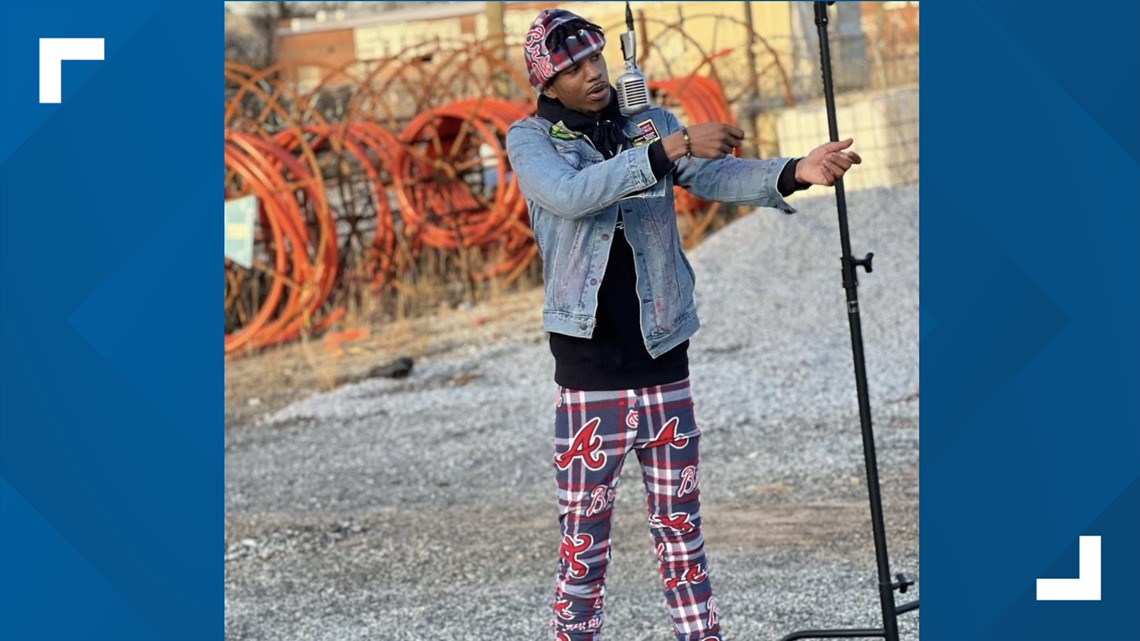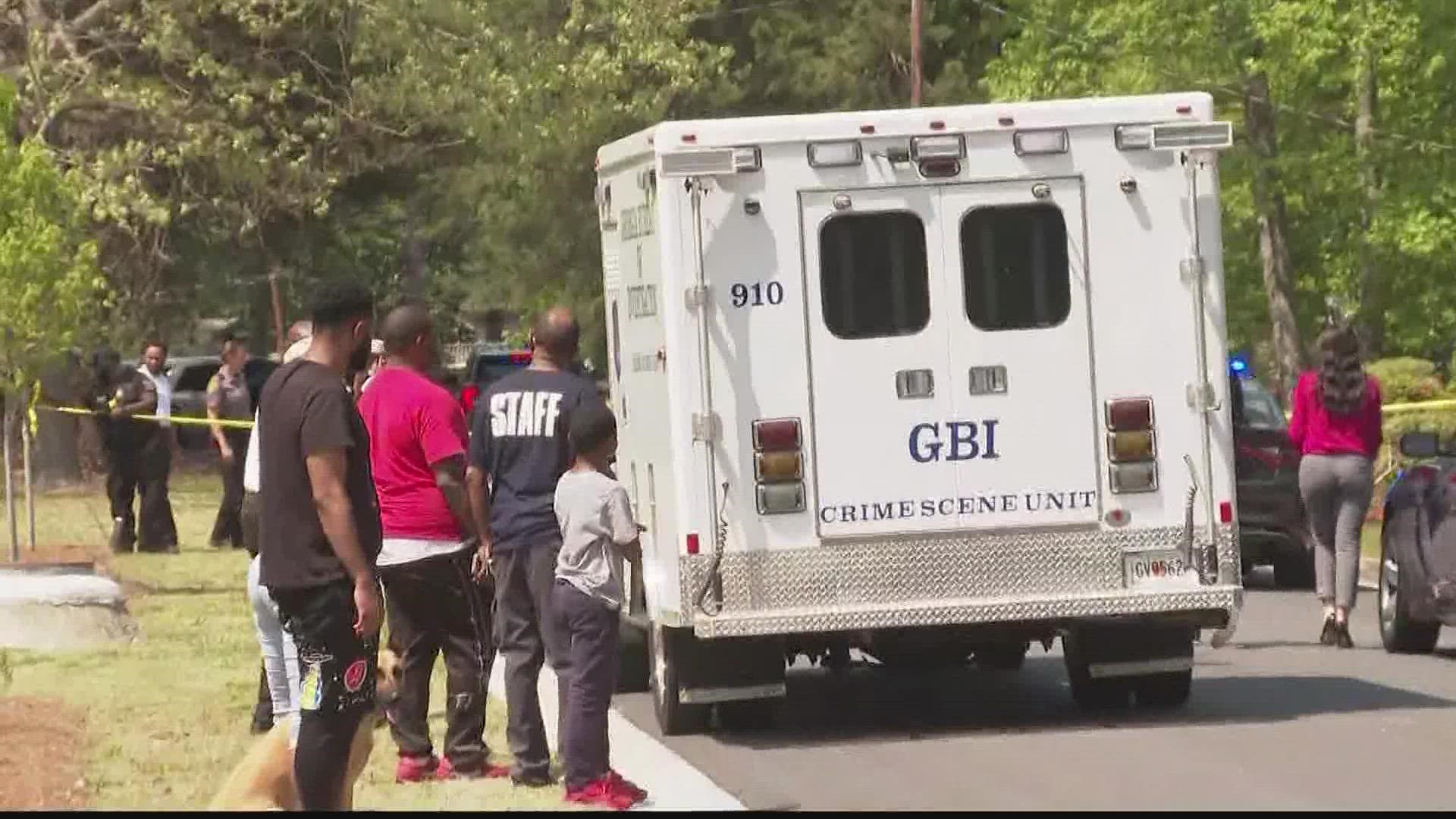SOUTH FULTON, Ga. — The Atlanta Police Department said Friday an officer shot and killed a suspect wanted on a gang homicide warrant, as the father disputed with reporters that his son had been wanted for murder and had been complying with the legal process over a case.
APD Deputy Chief Charles R. Hampton, Jr. said in a news conference the suspect had a handgun when police encountered him inside a home in South Fulton while serving the warrant, but would not go into further detail. He did not directly answer whether the suspect had ever fired the weapon.
In a release Saturday, the Georgia Bureau of Investigation did not indicate that the suspect had ever fired a weapon.
The father, Harold McDermott, identified his son Chase McDermott as the person who had been shot and killed inside the home. He said he did not believe his son had a gun, because he had already removed a firearm his son owned from the house when the 22-year-old was released on probation.
The GBI said Saturday a handgun was recovered at the scene.
Deputy Chief Hampton said APD fugitive units had gone inside the home to serve the warrant when the incident occurred. He described the suspect as an "armed fugitive."
The father, Harold McDermott, said he could not understand why police had come to the house in the way that they did. He said his son had been released on bond in conjunction with a case, and that he had lawyers who had been in contact with detectives.
Harold McDermott said he was on his back deck when police surrounded the home, and that he offered to go in and talk to his son to bring him out for police.
"I said 'I can bring him out, let me go talk to him, I'll bring him out,'" McDermott said. "They waive me back and then when I turned around I heard two gunshots, and they killed my son."
The GBI said Chase McDermott had "refused to exit the home" when officers went in.
11Alive legal analyst Page Pate explains why an officer might not allow the father to step up and bring his son outside.
"I would not expect the officer to go along with because if I've got an arrest warrant, and I've decided I'm going to execute it like this, that's the way I'm going to execute it. I understand you may want to help you need to stand out of the way because I'm going to execute this warrant and the officer has a lawful right to go into that house and execute that warrant. Even if they say, Hey, wait a minute, we'll bring him outside, we'll turn him in at the station. The officer is not legally required to do anything other than execute that arrest warrant," he said.
Pate explains that how a warrant is executed is, in part, up to the officer and the suspects' criminal background.
“A lot will depend on their impression of the person: do they have a lengthy criminal history? Do they have a history of violent crimes? Do they believe that they may be armed and dangerous at the time," he said.
The father said he could not remember the exact charges his son was facing, but that none were murder. He said his son was out of jail with an ankle monitor, had gotten his job back and was complying with release conditions.
He said the original incident his son had been arrested for involved him being "in the wrong place at the wrong time" and he accused the police department of trying to "affiliate him with every gang in Atlanta."
Police confirmed with 11Alive that they have enough evidence tying the suspect to a gang.
“If they're represented by a lawyer by counsel, there's no reason why the prosecutor or the arresting agency can't reach out to that lawyer and say we have another warrant for your client he needs to turn himself in," Pate added.
11Alive has reached out to authorities for a copy of the warrant.
"He paid his fine yesterday himself with his own money. We were waiting for the legal process to play itself out, and they came down so fast he was probably scared. He was in his bedroom with an ankle bracelet on, just getting off work," the father said.


"I'm positive my son wouldn't have fired (at an officer). He was not no street kid, I was a single father, I raised him and his brother right here, they do not know nothing about no streets," he added.
McDermott said he was "shell shocked that I don't have my son." He said his son "should still be here" and that he had lived at home with the father since 2009, "growing up in this neighborhood."
"He turned himself in voluntarily the first time, so why couldn't you call and ask for him to voluntarily (come in again)," he said. "A 22-year-old kid that's already scared because detectives - he's told them everything he knows - they were hounding us."
He said there "had to be another procedure than to come and scare the hell out of everybody without no call, no nothing."
McDermott said there had been multiple people inside the home when police arrived.
"We were following the legal system," he said. "What is he doing? Nothing, but complying with the legal process."
When he heard the shots, he said, "something just went out of me."
"He was a good kid. I haven't processed it yet because I'm trying to hold it together. I'm traumatized is what I am," McDermott said. "I mean that was my little buddy."

